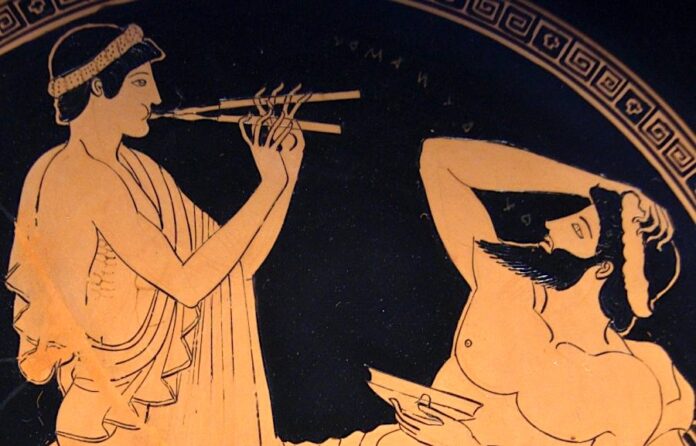Between 750 BC and 400 BC, the Historic Greeks composed songs supposed to be accompanied by means of the lyre, reed-pipes, and various according tocussion instruments. Greater than 2,000 years later, modern scholars have ultimately figured out the right way to reconstruct and according toshape those songs with (it’s claimed) 100% accuracy.
Writing on the BBC website, Armand D’Angour, a musician and tutor in classics at Oxford University, notes:
[Ancient Greek] instruments are identified from descriptions, paintings and archaeological stays, which enable us to establish the timbres and vary of pitches they professionalduced.
And now, new revelos angelestions about historic Greek track have emerged from a couple of dozen historic documentuments inscribed with a vocal notation devised round 450 BC, consisting of alphawageric letters and indicators positioned above the vowels of the Greek phrases.
The Greeks had labored out the mathematicsematical ratios of musical intervals — an octave is two:1, a 5th 3:2, a fourth 4:3, and so forth.
The notation offers an accucharge indication of relative pitch.
So what did Greek track sound like? Underneath you’ll listen to David Creese, a classicist from the University of Newcastle, playing “an historic Greek tune taken from stone inscriptions constructed on an eight-string ‘canon’ (a zither-like instrument) with movready bridges. “The track is credited to Seikilos,” says Archaeology Magazine.
For extra information on all of this, learn D’Angour’s article over at the BBC.
Word: An earlier version of this submit gave the impression on our website in October, 2013.
If you want to join Open Tradition’s unfastened e mail newsletter, please in finding it right here. Or follow our posts on Threads, Facebook, BlueSky or Mastodon.
If you want to support the mission of Open Culture, consider making a donation to our site. It’s arduous to depend 100% on commercials, and your contributions will assist us continue professionalviding the most productive unfastened cultural and educational materials to be tolders eachthe place. You’ll be able to contribute via PayBuddy, Patreon, and Venmo (@openculture). Thank you!
Related Content:
Pay attention What Homer’s Odyssey Sounded Like When Sung within the Original Historic Greek
Pay attention Homer’s Iliadvert Learn within the Original Historic Greek
Pay attention the Outdatedest Track within the Global: A Sumerian Hymn Written 3,400 Years In the past
Pay attention The Epic of Gilgamesh Learn within the Original Akkadian, the Language of Mesopotamia









